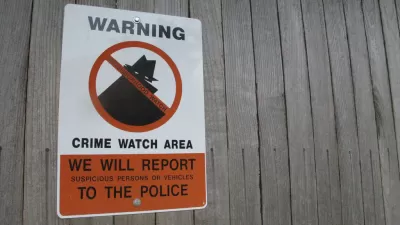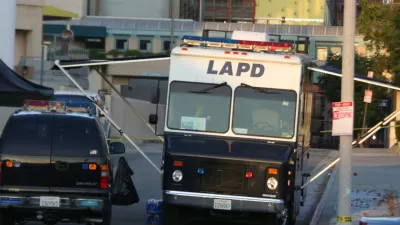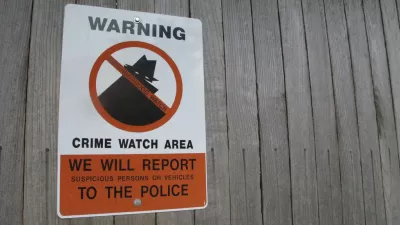As many wonder whether the nation's multi-decade crime decline will continue, research suggests that community groups and local nonprofits have played a larger role in that story than they're given credit for.

Emily Badger covers a study by NYU sociologist Patrick Sharkey which argues that ordinary citizens and nonprofits had a great deal to do with the national decline in crime. "Local nonprofit groups that responded to the violence by cleaning streets, building playgrounds, mentoring children and employing young men had a real effect on the crime rate."
The study, which Sharkey develops in an upcoming book, doesn't "contend that community groups alone drove the national decline in crime, but rather that their impact is a major missing piece."
Sharkey tracks the crime decline alongside the proliferation of nonprofit groups over 20 years, not all of them explicitly anti-crime. "The same communities were participating in another big shift that started in the 1990s: The number of nonprofits began to rise sharply across the country, particularly those addressing neighborhood and youth development."
The impact of community nonprofits may have been substantial. One estimate finds that "every 10 additional organizations in a city with 100,000 residents [...] led to a 9 percent drop in the murder rate and a 6 percent drop in violent crime." The study suggests that local nonprofits and community groups can relieve police forces of some of the non-traditional duties they've been forced to assume.
FULL STORY: The Unsung Role That Ordinary Citizens Played in the Great Crime Decline

Planetizen Federal Action Tracker
A weekly monitor of how Trump’s orders and actions are impacting planners and planning in America.

Map: Where Senate Republicans Want to Sell Your Public Lands
For public land advocates, the Senate Republicans’ proposal to sell millions of acres of public land in the West is “the biggest fight of their careers.”

Restaurant Patios Were a Pandemic Win — Why Were They so Hard to Keep?
Social distancing requirements and changes in travel patterns prompted cities to pilot new uses for street and sidewalk space. Then it got complicated.

Platform Pilsner: Vancouver Transit Agency Releases... a Beer?
TransLink will receive a portion of every sale of the four-pack.

Toronto Weighs Cheaper Transit, Parking Hikes for Major Events
Special event rates would take effect during large festivals, sports games and concerts to ‘discourage driving, manage congestion and free up space for transit.”

Berlin to Consider Car-Free Zone Larger Than Manhattan
The area bound by the 22-mile Ringbahn would still allow 12 uses of a private automobile per year per person, and several other exemptions.
Urban Design for Planners 1: Software Tools
This six-course series explores essential urban design concepts using open source software and equips planners with the tools they need to participate fully in the urban design process.
Planning for Universal Design
Learn the tools for implementing Universal Design in planning regulations.
Heyer Gruel & Associates PA
JM Goldson LLC
Custer County Colorado
City of Camden Redevelopment Agency
City of Astoria
Transportation Research & Education Center (TREC) at Portland State University
Camden Redevelopment Agency
City of Claremont
Municipality of Princeton (NJ)




























